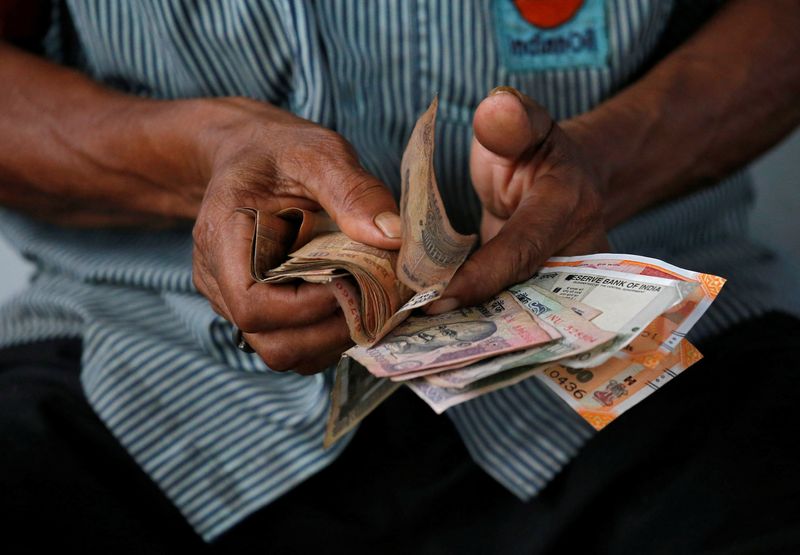By Jaspreet Kalra and Dharamraj Dhutia
MUMBAI (Reuters) - Overseas investors seeking exposure to India's debt ahead of its inclusion in global benchmark indexes are using proxy instruments such as offshore swaps as they aim to overcome the country's onerous investment regulations.
Foreign investors have flocked to Indian government bonds ahead of their inclusion in the JPMorgan emerging market debt index from June, seeking to front-run the $20-25 billion from index-tracking funds that is expected to subsequently flow into the market.
Foreign inflows have surged since JPMorgan announced the inclusion in September 2023.
Of the $9.3 billion worth of net inflows into Indian bonds, a large proportion is expected to have come via offshore derivatives, said Parul Mittal Sinha, India head of financial markets at Standard Chartered (OTC:SCBFF) Bank.
India is an "important country so it needs to be in a government bond index like this," said Carl Vermassen, a portfolio manager in the emerging markets debt team at Vontobel Asset Management, a Zurich-based firm with $5.2 billion in assets invested in its emerging markets debt funds.
"On the other hand, they are not making it easy," he said.
To invest directly in Indian debt, foreign investors need to be registered with local regulators and are required to pay a 20% withholding tax on interest earnings, and a capital gains tax.
To avoid this, foreign investors are using offshore derivatives such as total return swaps (TRS) and offshore interest rate swaps (OIS) as also rupee-denominated bonds issued by supranationals such as the World Bank, six bankers said.
Total return swaps (TRS), in which an offshore investor can exchange some form of fixed payments with an onshore bank and receive the equivalent of bond yields, have emerged as the most popular derivative, particularly those with short tenors of three months to one year, the bankers said. The underlying bond is bought and held by the bank and not the investor.
The non-deliverable version of rupee interest rate swaps is another popular option for investors.
Besides directly purchasing rupee bonds, foreign investors can use interest rate swaps and cross currency swaps to bet on rupee rates, said Rick Cheung, portfolio manager for emerging market debt at BNP Paribas (OTC:BNPQY) Asset Management.
Other than the JPMorgan debt index, Bloomberg Index Services will include Indian government bonds in its emerging market local currency index from January 2025.
Anita Mishra, head of markets and securities services at HSBC India, said the bank, one of India's largest custodian banks, has seen "significant interest" by active managers in offshore derivatives.
HSBC is offering these derivatives offshore and via India's tax-neutral investment zone called the GIFT City.
The notional value of offshore derivatives on Indian debt rose to 167.31 billion rupees in January from 104.62 billion rupees in September, according to data from the Securities and Exchange Board of India (SEBI).
This data only includes figures submitted by custodians to SEBI and is not exhaustive as it does not include deals struck overseas.

Supranational bonds, a name given to local currency bonds issued by agencies such as the World Bank, also remain popular.
Vontobel is using this route. Even though the fund has access to the Indian government bond market, the process of getting the necessary registrations "is a pain", said Vermassen.